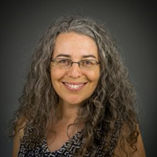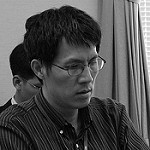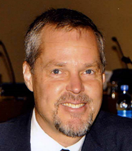Citizen Science and the Validation, Curation, and Management of Crowdsourced Data (with WDS)
The objectives of this CODATA–WDS TG are to better understand the ecosystem of data-generating citizen science, crowdsourcing, and volunteered geographic information (VGI) projects so as to characterize the potential and challenges of these developments for science as a whole, and data science in particular. The TG will explore issues surrounding the methods and approaches for validating various streams of citizen science data, the mechanisms for cleaning and curating the data, and systems in place for the long-term management and dissemination of those data.
This is significant since citizen science projects represent a large and growing set of data generating activities of relevance to the scientific community, but one that has received relatively less attention from the data science community.
The TG’s activities will include:
- Identifying the universe of scientifically oriented data-generating citizen science and crowdsourcing initiatives and creating a typology of citizen science data-generating tasks.
- Of the universe of initiatives, identifying a subset from each type, and interviewing leaders, participants, researchers, and coders, as well as scientists using the data.
- Generating a white paper, which is subsequently planned to be turned into a journal article surveying the field.
- Generating a list of best practices for data validation, data documentation, curation, and management that will be promoted in the citizen science community.
Task Group outputs
The TG will
- Complete and submit a paper to the CODATA Data Science Journal that will address the issues of crowdsourcing of scientific information.
- Seek to develop one or more white papers on derivative project results.
- Formulate guiding principles and best practices for implementing apps and web platforms for easy data retrieval by scientists and (offline) data input by participating citizens.
- Submit sessions at the SciDataCon 2018 Conference, as well as to an international workshop in 2017 if sufficient funding is obtained.
- Potentially organize educational or training outreach by the data management community at US or European Citizen Science Association meetings.
- Potentially generate guidelines for citizen science projects on developing protocols to be followed by volunteers.
Task Group Activities
- Monthly teleconferences starting January 2017, Jan-17
- Complete list of citizen science and crowd sourcing projects to be reviewed, May-17
- Side meeting at Citizen Science Association (CSA) meeting in St. Paul Minnesota, May-17
- Hire intern for 2–3 months to work on improvements to SciStarter.com database and other research tasks, Jun-17
- Complete interviews and analysis of projects related to crowdsourcing, Oct-17
- International workshop to draw expertise from other research communities and networks, Dec-17
- Complete draft white paper/journal article on the analysis, Jan-18
- Complete draft guidelines for citizen science initiatives, Mar-18
- Publish journal article, Aug-18
- Conduct outreach or education workshops at US or European CSA conferences, May-18
- Finalize guidelines for citizen science initiatives, Oct-18
Co-chairs
| Caren Cooper
Associate Professor in Forestry and Environmental Resources at North Carolina State University in the Chancellor’s Faculty Excellence Program in Leadership in Public Science Caren.Cooper (at) naturalsciences.org For 14 years (2001-2015), Cooper helped design citizen science projects at the Cornell Lab of Ornithology including My Yard Counts, YardMap, NestWatch, Celebrate Urban Birds, and the House Sparrow Project. Cooper has over 50 publications, including research papers that relied on data from NestWatch, Project FeederWatch, Christmas Bird Count, Breeding Bird Survey, and My Yard Counts. Cooper was involved in the formation of the Citizen Science Association, chairs the ethics working group, and led the committee to create a new journal, Citizen Science: Theory and Practice. She is a co-editor-in-chief for the CSA’s journal. She is director of research partnerships with SciStarter.com, the largest searchable repository of citizen science projects. |
 |
| Tyng-Ruey Chuang
Associate Research Fellow, Institute of Information Science. Academia Sinica trc (at) iis.sinica.edu.tw Tyng-Ruey Chuang is an associate research fellow at the Institute of Information Science, Academia Sinica (Taiwan) with joint appointments at both the Research Center for Information Technology Innovation and the Research Center for Humanities and Social Sciences (Center for Geographic Information Science). During the 2011–2012 academic year, he was a fellow at the Berkman Center for Internet and Society, Harvard University, supported in part by the National Science Council of Taiwan and a Fulbright senior research grant. He has been the public lead of Creative Commons Taiwan since 2003, and served as the executive secretary of the CODATA Taiwan national committee from 2007 to 2013. His research interests include: functional programming, programming languages and systems, open geospatial information processing, and social implications of information technologies. |
 |
| Alex de Sherbinin
Associate Director for Science Applications. CIESIN, Columbia University adesherbinin (at) ciesin.columbia.edu Alex de Sherbinin is the associate director for science applications at the Center for International Earth Science Information Network (CIESIN), a center within the Earth Institute at Columbia University. He also serves as Deputy Manager of the NASA Socioeconomic Data and Applications Center. He has been a member of the ICSU World Data System Scientific Committee since 2015, and has served as the CODATA Global Roads Data Development Task Group Chair from 2008-2016. He received his PhD in 2014 from the Faculty of Geo-Information Science and Earth Observation (ITC), University of Twente, Netherlands. |
 |
